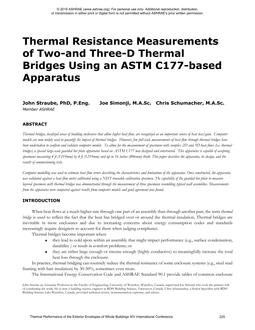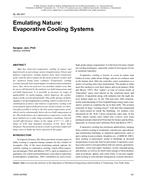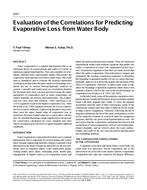Presents the results of wind tunnel studies on the effect disrupted glazing surfaces have on convective heat loss. Height, spacing and shapes of disruption are varied while measuring their effects on the convective heat transfer coefficient as a function of air speed. Discusses likely effects on glazing U-values. States that with further work it should be possible for designers to specify the best height/spacing ratio for an atrium framework, to optimise mullion/transom configurations for glazing and to select appropriate recess depths for windows in walls.
KEYWORDS: Wind tunnels, glazing, heat loss, convection, transmittance, air flow, speed, research, measuring
Citation: ASHRAE Transactions, vol.97, pt. 2, Indianapolis, IN 1991
Product Details
- Published:
- 1991
- Number of Pages:
- 8
- File Size:
- 1 file , 860 KB
- Product Code(s):
- D-17960


